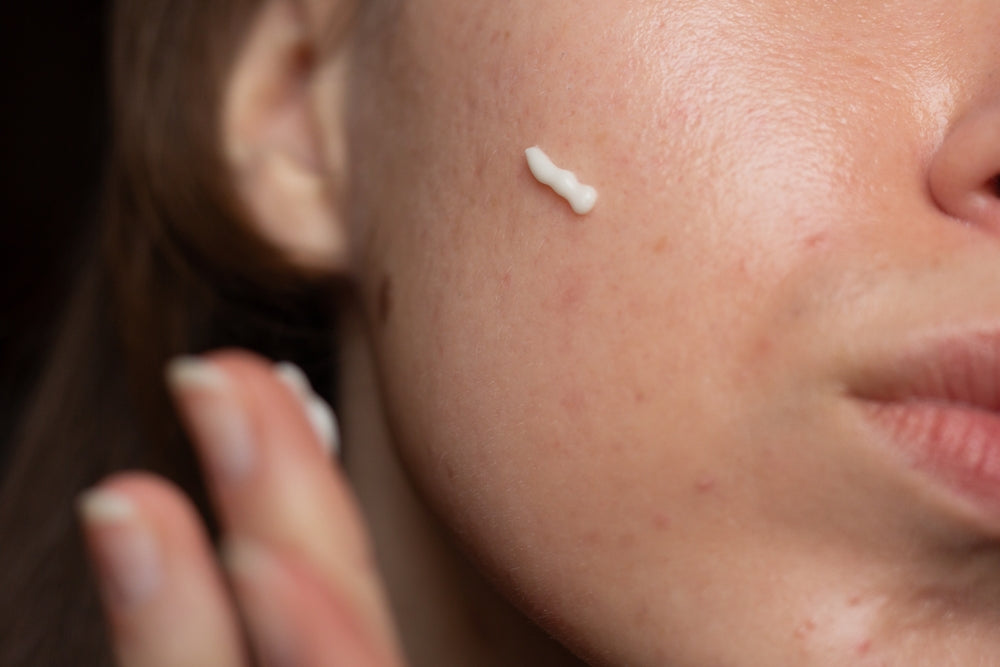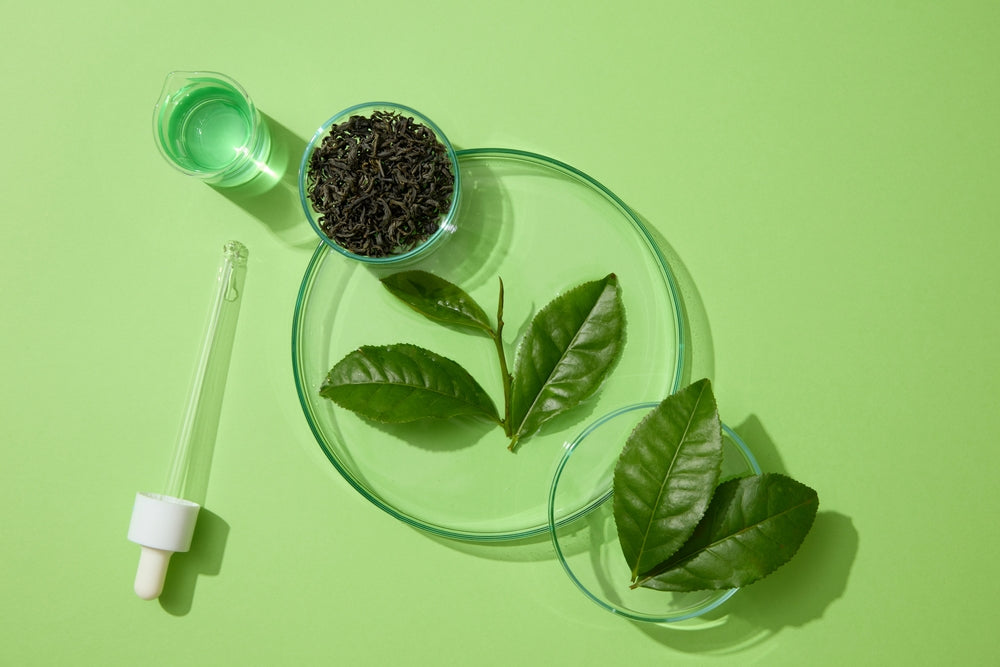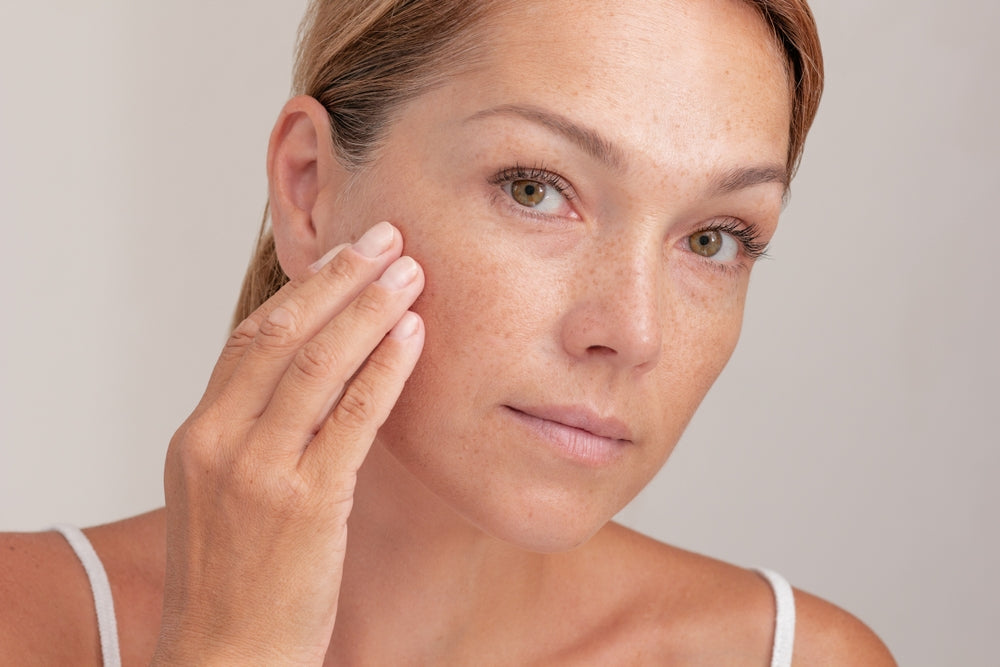If you are interested in skincare, you may have heard the term “retinoid” and “retinol” thrown around. However, what is the difference between these two compounds, and what exactly do they do? Read on to learn more!
What Is a Retinoid?
Retinoids are a class of compounds derived from vitamin A. Nowadays, these products are found pretty much anywhere you can purchase beauty products, including makeup stores, pharmacies, and grocery stores. The majority of retinoids are applied topically, while others such as Accutane are oral medications. Retinoids work by promoting collagen and elastin production, visibly improving skin texture, and helping reduce the appearance of wrinkles over time. These combined benefits make them a popular choice for acne treatment and skin rejuvenation.
What is Retinol?
Retinol is a type of retinoid that is used in many over-the-counter products.. It is the most widely used, most stable, and well-tolerated retinoid for cosmetic use. Concentration usually ranges between 0.0015% to 0.3%. While it is an effective ingredient, it is different from prescription-strength retinoids molecularly. Retinols require a two stage conversion within the skin to go from retinol to retinoic acid. Retinoic acid is only available by prescription and is called tretinoin.
Retinoid Benefits
Retinoids are an essential ingredient for successfully addressing acne concerns, and when paired with sun protection, are fantastic for combatting the visible signs of aging. Retinoids are often known as the gold standard in skincare.
Retinol Benefits
Whether you are using retinol or a prescription retinoid, they are both essential ingredients to successfully help with acne; and when paired with sun protection, are fantastic for combatting the visible signs of aging. Sun exposure is one of the main causes of premature aging and hyperpigmentation. Retinoids are often known as the gold standard in skincare because they can effectively combat acne and other skin concerns.
Retinol and tretinoin are often recommended by skincare professionals and dermatologists due to their reliability in the treatment of the appearance of acne, fine lines and wrinkles, and sun-damaged skin. Even sensitive skin can benefit from a retinol product when added slowly to a skincare routine. Additionally, retinol is known to improve barrier function and increase natural moisturizing factors over time. It is also an effective antioxidant, which helps reduce oxidative stress - a contributing factor to the aging process. Incorporating retinol even once a week can benefit the skin.
How do I use retinol creams or retinoids?
If your dermatologist or provider has prescribed tretinoin or retinol, there are some steps you should follow to ensure you are getting the most out of your treatment. You should apply the retinoid product in a pea size amount to the entire face once daily in the evening to clean dry skin. It is also recommended to leave your retinoid on for a minimum of five to thirty minutes before applying other products. You should also be sure to apply a moisturizer afterward to keep your skin moisturized. Also, never apply retinoid or retinol cream at the same time as benzoyl peroxide, which may cause irritation.
What are the side effects of retinol and retinoids?
Both retinol and retinoids can cause similar side effects including itchiness, redness, and skin sensitivity to sunlight, which is why it is important to wear sunscreen both indoors and outdoors. If these effects become bothersome to you, reach out to your provider to discuss possible solutions.
The Best Products
At Epicuren Discovery, our Retinol Anti-Wrinkle Complex is a synergistic blend of vitamin A and glycolic acid formulated to combat the visible signs of aging. It can also be paired with our CXC Vitamin C Complex to create a great Prevention & Correction Duo.
Frequently Asked Questions
Should I start with retinoid or retinol?
If you have sensitive skin that is prone to irritation, over-the-counter retinol may be a good starting point, as it is not as potent as prescription retinoids.
Retinol vs Tretinoin - Which retinoid is best for acne?
Prescription-strength topical retinoids such as tretinoin, are most commonly used for the treatment of acne and acne scars. However, compliance is often difficult due to the side effects when beginning usage. Talk to your provider to see what options are right for you. You may be surprised that retinol may be just as good and more tolerable for clearing acne, especially when first using topical retinoids..
Sources
Zaenglein, A. L., et al. (2016). Guidelines of care for the management of acne vulgaris. Journal of the Academy of Dermatology.
Spierings, N. M. K. (2021). Evidence for the efficacy of over-the-counter vitamin A cosmetic products in improvement of facial skin aging: A systematic review. Journal of Clinical and Aesthetic Dermatology.





